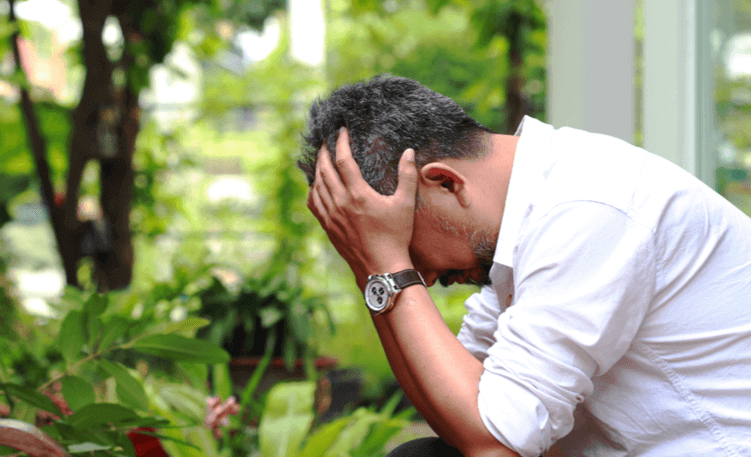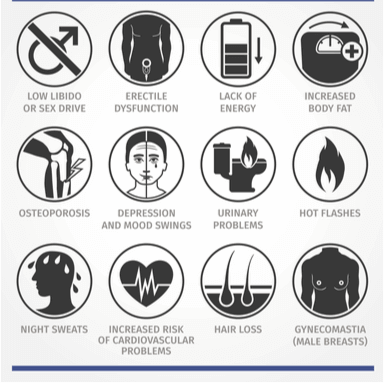Male Menopause Happens And You Should Know About It

If you have a male member above 45 years of age in the family who is suffering from mood swings, facing urinary problems and issues of libido, they need to check if they are suffering from what has now been identified and acknowledged as Androgen Deficiency of the Ageing Male (ADAM) or Male Menopause. It is not a serious medical ailment and more often than not needs some medical and lifestyle adjustments, but you should definitely consult a doctor.
What Is Male Menopause?
Hormonal changes are a natural part of ageing. Although men and women experience these changes differently, they are inevitable. In men, they set in gradually, unlike in women who experience sudden changes in their hormones.
Male Menopause or Andropause, is often characterised by decreasing testosterone levels with ageing. Although there is quite a bit of debate in the medical community regarding its signs and symptoms, some men have experienced surging hormonal changes during this phase. This phase is also called testosterone deficiency, late-onset hypogonadism, and androgen deficiency. It starts setting in for men aged between 45 and 50 years.
Testosterone is a hormone that is produced in your testes, and does more to your body than just induce a sex drive. It aids in maintaining muscle mass, physical and mental health, fuels growth after puberty, and enhances your fight-or-flight instincts.
What Causes Male Menopause?
As part of ageing, testosterone levels on an average decline by 1% every year, which is a major reason. However, genetic causes and chronic illnesses like diabetes, HIV, chronic obstructive lung disease, inflammatory arthritic disease or renal diseases can also trigger the onset. Lifestyle issues like obesity, heavy smoking, stress and poor dietary habits ensure it sets earlier than the average healthy person.
Lowered levels of testosterone, if left unchecked, can lead to complications in sex life. It may result in a lack of sex drive, decreased libido, reduced frequency of morning erections, or cause erectile dysfunction.
What Are The Symptoms Of Male Menopause?

Symptoms of Male Menopause can be disruptive to your day-to-day life. The major ones you should look out for are:
- Low energy levels
- Reduced motivation
- Depression or a constant feeling of being low or sad
- Decreased attention span
- Sleep problems or Insomnia
- Weight gain and reduced muscle mass
- Reduced libido
- Erectile dysfunction
- Gynecomastia (male breast growth)
- Infertility
Low levels of testosterone has also been associated with a condition called Osteoporosis, where your bone becomes brittle and weaker than before.
What Should You Do Next?

Male Menopause, more often than not, go unnoticed among Indian men, because it comes as a gradual and natural process with ageing. There are no visibly disruptive signs or symptoms and it is ascribed to overall ageing. But the fact is it can be helped and made better.
If you or a family member are experiencing any of the symptoms, consult a doctor. Note down all the small and big things you are feeling - there is no need to be shy as hormonal changes happen to everyone. If you are going through bouts of sadness and feelings of loneliness, reach out for help.
Your doctor can take a blood sample to test your testosterone levels. Depending on your count, he will suggest a treatment or otherwise. More often than not, unless this phase of Male Menopause greatly disrupts your everyday life, small changes to lifestyle and dietary habits can make you overcome this feeling of loss. Go through all the screenings that your doctors suggests. It’s best to understand all the changes in your body to avoid any serious long-term damage.
How To Make Your Treatment A Success?

In case you have depression, your doctor might suggest antidepressants or therapy. Hormone replacement therapy, although controversial and has a number of threatening side effects, can be another method of treatment to explore. However, it is best to consult your doctor before taking any measures.
Managing the condition is easy - start eating healthy, exercise regularly, avoid unwanted stress and sleep well. If required, the doctor might prescribe medication but a healthy lifestyle is key to success.


